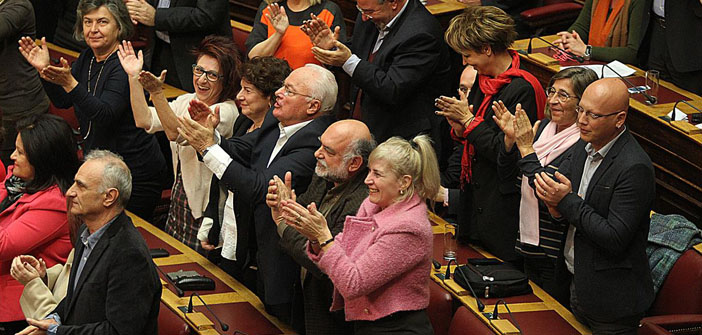In Greece, the third and final parliamentary vote to elect a President failed, leading to the dissolution of the Parliament. Prime Minister Antonis Samaras has announced early general elections on January 25.
The only candidate at the Presidential vote was Stavros Dimas, 73, former European Commissioner, and supported by the coalition government and some independent members of parliament. Dimas required the votes of at least 180 of the 300 members of parliament to win the Presidency in the third round of voting. However, he received the same number of votes as the second round, 168.
According to the Greek Constitution, in the event that the President is not elected over three rounds, the parliament needs to be dissolved in 10 days, and an early election must be declared.
The early election will be held on January 25. So far, all opinion polls have indicated that the main opposition SYRIZA, the Coalition of the Radical Left, will emerge as the first party from the upcoming elections.
SYRIZA’s leader Alexis Tsipras hailed the result, stating, “The future has already begun”. He added that in the event that they won the elections, bailouts tied to austerity packages would become a thing of the past and that SYRIZA would renegotiate credit terms with the IMF.
Some specialists have claimed that Greece could resink into economic crisis following political uncertainty, however, a sudden fall in shares in the Athens stock market seemed to show signs of recovery within 24 hours.





